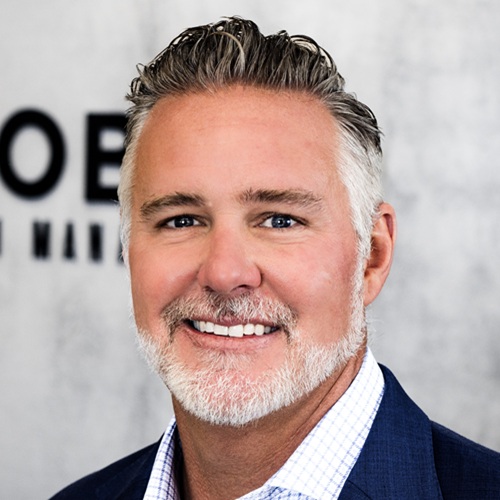4 Strategies to Avoid an Estate-Planning Mishap
Even after you're gone, you can still help provide for the people and causes you care about.

Profit and prosper with the best of Kiplinger's advice on investing, taxes, retirement, personal finance and much more. Delivered daily. Enter your email in the box and click Sign Me Up.
You are now subscribed
Your newsletter sign-up was successful
Want to add more newsletters?

Delivered daily
Kiplinger Today
Profit and prosper with the best of Kiplinger's advice on investing, taxes, retirement, personal finance and much more delivered daily. Smart money moves start here.

Sent five days a week
Kiplinger A Step Ahead
Get practical help to make better financial decisions in your everyday life, from spending to savings on top deals.

Delivered daily
Kiplinger Closing Bell
Get today's biggest financial and investing headlines delivered to your inbox every day the U.S. stock market is open.

Sent twice a week
Kiplinger Adviser Intel
Financial pros across the country share best practices and fresh tactics to preserve and grow your wealth.

Delivered weekly
Kiplinger Tax Tips
Trim your federal and state tax bills with practical tax-planning and tax-cutting strategies.

Sent twice a week
Kiplinger Retirement Tips
Your twice-a-week guide to planning and enjoying a financially secure and richly rewarding retirement

Sent bimonthly.
Kiplinger Adviser Angle
Insights for advisers, wealth managers and other financial professionals.

Sent twice a week
Kiplinger Investing Weekly
Your twice-a-week roundup of promising stocks, funds, companies and industries you should consider, ones you should avoid, and why.

Sent weekly for six weeks
Kiplinger Invest for Retirement
Your step-by-step six-part series on how to invest for retirement, from devising a successful strategy to exactly which investments to choose.
What do Abraham Lincoln, Bob Marley and Prince have in common? (Besides being respected and beloved, that is.)
They all died without a will.
Why would such celebrated men—all with complicated family and business relationships, not to mention plenty of experts around to advise them—delay or avoid putting their last wishes down on paper?
From just $107.88 $24.99 for Kiplinger Personal Finance
Become a smarter, better informed investor. Subscribe from just $107.88 $24.99, plus get up to 4 Special Issues

Sign up for Kiplinger’s Free Newsletters
Profit and prosper with the best of expert advice on investing, taxes, retirement, personal finance and more - straight to your e-mail.
Profit and prosper with the best of expert advice - straight to your e-mail.
Their reasoning, no doubt, was the same as it is for most people: They were busy. They were caught up in day-to-day life. They didn't want to think about it or take the time to sit down and just do it.
People tend to overestimate both the time and effort that go into putting together a will. They also underestimate the problems that can result if they don't have a plan in place.
In my opinion, while you're likely to hear loads about income and investments, you may not hear about things like taxes, health care, asset protection and leaving a legacy for family, friends and charity. It just doesn't happen.
How can you help make sure your transfer of wealth goes smoothly when you die? Here are four basic strategies to discuss with a licensed attorney and your financial adviser to help you avoid an estate-planning mishap.
1. Make sure you have a simple will in place.
This is the first line of defense. A will dictates your wishes and how you want your assets distributed when you die. Most people think wills are expensive, but for not much money, you can have a licensed attorney design your will exactly as you want it.
2. Create a living trust.
This legal document can protect your assets and avoid the probate process. (A will doesn't necessarily do that.) A lot of people think they don't need a living trust, but it can help ensure your assets are managed according to your wishes, even if you are no longer able to manage them yourself. It puts in place your health care surrogate and your power of attorney—the people who will be making decisions about your physical and financial life.
Famous or not, a trust can help you maintain your privacy—something you'll lose if your documents and family squabbles end up in probate court.
3. Properly title your accounts.
At the very least, make sure you have a trust in place or a "transfer on death" designation (which allows assets to pass directly to the beneficiaries named by the owner). Without one of these titles, an individual investment account is in danger of going to probate. Even with a joint account, when the second person dies, the money is at risk without a title. Similarly, people often don't properly name beneficiaries and contingent beneficiaries on IRAs and other tax-qualified accounts.
4. Put life insurance into play.
Life insurance policies are used to provide a death benefit for your loved ones and can add to the legacy you wish to pass down.
These policies can help cover final expenses, of course, such as funeral, burial and medical bills. An IRA owner facing a required minimum distribution (RMD) who doesn't need the income and wants to leave that money to beneficiaries may want to consider using those RMDs to purchase a life insurance policy.
If you're contemplating buying insurance, you probably are at a stage in life when you should be thinking about all four of these strategies. So set aside time now — for yourself and for your family—and meet with a qualified financial adviser who can work in concert with a licensed attorney. Once your plans are in place, review them every few years or so.
Don't wait.
Because when you're planning for the future, it's not just about your money; it's also about where you want that money to go after you're gone.
C. Grant Conness is co-founder of Global Wealth Management), an Investment Adviser Representative at Global Financial Private Capital and insurance professional. He has passed the Series 7, 63 and 65 securities exams.
Kim Franke-Folstad contributed to this article.
The appearances in Kiplinger were obtained through a PR program. The columnist received assistance from a public relations firm in preparing this piece for submission to Kiplinger.com. Kiplinger was not compensated in any way.
Profit and prosper with the best of Kiplinger's advice on investing, taxes, retirement, personal finance and much more. Delivered daily. Enter your email in the box and click Sign Me Up.

Grant Conness is Managing Director and Co-Founder of Global Wealth Management, recognized as the No. 1 financial advisory firm in Southeast Florida by USA TODAY's 2025 Best Financial Advisory Firms list.* With more than 20 years of experience, Grant focuses on helping clients navigate the critical five years before and after retirement through the firm's proprietary Retirement Roadmap Review process. Grant is co-host of Retire Now South Florida on NBC, CBS, ABC and FOX, and he has been quoted in The Wall Street Journal.** He is also co-author of Charting Your Financial Course.
-
 Betting on Super Bowl 2026? New IRS Tax Changes Could Cost You
Betting on Super Bowl 2026? New IRS Tax Changes Could Cost YouTaxable Income When Super Bowl LX hype fades, some fans may be surprised to learn that sports betting tax rules have shifted.
-
 How Much It Costs to Host a Super Bowl Party in 2026
How Much It Costs to Host a Super Bowl Party in 2026Hosting a Super Bowl party in 2026 could cost you. Here's a breakdown of food, drink and entertainment costs — plus ways to save.
-
 3 Reasons to Use a 5-Year CD As You Approach Retirement
3 Reasons to Use a 5-Year CD As You Approach RetirementA five-year CD can help you reach other milestones as you approach retirement.
-
 The 4 Estate Planning Documents Every High-Net-Worth Family Needs (Not Just a Will)
The 4 Estate Planning Documents Every High-Net-Worth Family Needs (Not Just a Will)The key to successful estate planning for HNW families isn't just drafting these four documents, but ensuring they're current and immediately accessible.
-
 Love and Legacy: What Couples Rarely Talk About (But Should)
Love and Legacy: What Couples Rarely Talk About (But Should)Couples who talk openly about finances, including estate planning, are more likely to head into retirement joyfully. How can you get the conversation going?
-
 How to Add a Pet Trust to Your Estate Plan: Don't Leave Your Best Friend to Chance
How to Add a Pet Trust to Your Estate Plan: Don't Leave Your Best Friend to ChanceAdding a pet trust to your estate plan can ensure your pets are properly looked after when you're no longer able to care for them. This is how to go about it.
-
 Want to Avoid Leaving Chaos in Your Wake? Don't Leave Behind an Outdated Estate Plan
Want to Avoid Leaving Chaos in Your Wake? Don't Leave Behind an Outdated Estate PlanAn outdated or incomplete estate plan could cause confusion for those handling your affairs at a difficult time. This guide highlights what to update and when.
-
 I'm a Financial Adviser: This Is Why I Became an Advocate for Fee-Only Financial Advice
I'm a Financial Adviser: This Is Why I Became an Advocate for Fee-Only Financial AdviceCan financial advisers who earn commissions on product sales give clients the best advice? For one professional, changing track was the clear choice.
-
 65 or Older? Cut Your Tax Bill Before the Clock Runs Out
65 or Older? Cut Your Tax Bill Before the Clock Runs OutThanks to the OBBBA, you may be able to trim your tax bill by as much as $14,000. But you'll need to act soon, as not all of the provisions are permanent.
-
 I'm a Financial Adviser: This Is the $300,000 Social Security Decision Many People Get Wrong
I'm a Financial Adviser: This Is the $300,000 Social Security Decision Many People Get WrongDeciding when to claim Social Security is a complex, high-stakes decision that shouldn't be based on fear or simple break-even math.
-
 4 Ways Washington Could Put Your Retirement at Risk (and How to Prepare)
4 Ways Washington Could Put Your Retirement at Risk (and How to Prepare)Legislative changes, such as shifting tax brackets or altering retirement account rules, could affect your nest egg, so it'd be prudent to prepare. Here's how.